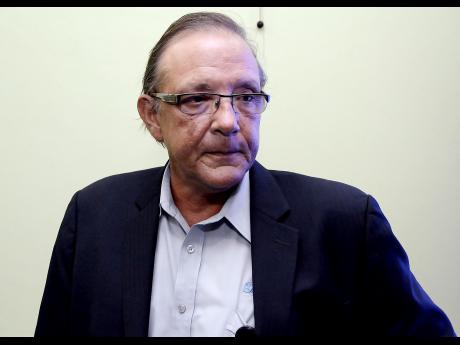Insurance rates will depend on effect of hurricane season
Start-up venture IronRock Insurance Company said property insurance rates could remain stable or dip next year despite predictions of a fairly active hurricane season.
"The activity is not the issue. The issue is whether the activity generates losses. If there are no significant losses, I do not see these rate increases going into next year," said Evan Thwaites, managing director at IronRock, in an interview with the Financial Gleaner following the company's annual general meeting at the Knutsford Court Hotel in New Kingston last Thursday.
"But if there is a big loss anywhere in the region, it will likely cause rates to go higher next year," he said.
Thwaites added that if predictions of disaster do not materialise, then "prices tend to react almost overnight".
There are predictions of between 12 to 16 storms this season, or above the 30-year average of 12, according to updates from the US-based National Oceanic and Atmospheric Administration (NOAA). The hurricane season runs from June 1 to November 30.
The market rates for property insurance were increased following losses arising from hurricanes Harvey, Irma and Maria which hit several countries in the Caribbean region last year. That resulted in reinsurers forcing local insurance companies to push up rates to what the reinsurers thought were economic levels, said Thwaites.
"So we have been benefiting from increases in property rates," said Thwaites, adding that property insurance makes up slightly more than half of its gross premiums. "We do not want to be over-reliant on one class of business, and property, at 50 per cent, is too large. So this year we are benefiting from a rise in rates, but next year rates could drop. So we want to balance it out."
Thwaites wants to grow the nominal size of the property insurance portfolio, but reduce it as a percentage of total premiums from 50 per cent to 40 per cent. A key strategy includes growing its motor vehicle written premiums.
RISE IN PROPERTY
Concurrently, IronRock continues to grow its revenues faster than projected as it benefited from a rise in property business. It, however, pushed back its timeline to post profits to 2019, or a year later, due to higher-than-anticipated expenses related to the business and marketing.
This financial year, the company expects revenues to grow by double-digit levels, said Thwaites. However, already first-quarter results show that IronRock continued to experience strong triple-digit growth. Its gross written premium, at $155 million for its first quarter ending March 2018, increased 150 per cent from $61.9 million a year earlier. IronRock's net loss for the period under review was $4.6 million compared to a loss of $27.3 million the previous year.
"We are climbing that mountain. We started with zero. We will keep climbing and then plateau for a year or two, because it is important to stop and make sure that your systems are capable of handling what's going on and that we do not lose control of what is going on," he said.
The company listed in March 2016 on the Jamaica Stock Exchange, noting in its prospectus that it plans to grow its premiums rapidly in order to achieve critical mass to cover its expenses. IronRock reported $424.5 million in gross premiums written for its December 2017 full year, up 233 per cent from $127.3 million a year earlier. It made a net loss of $47.9 million versus $50.3 million net loss in 2016 due to higher-than- projected expenses surrounding growing the business and marketing.


